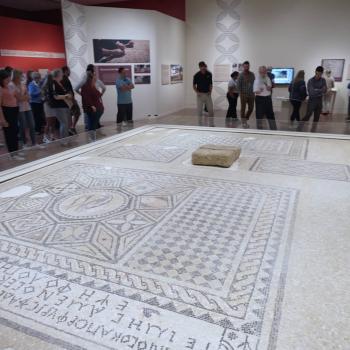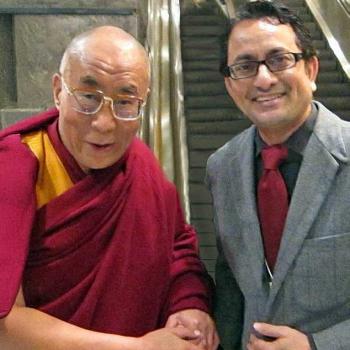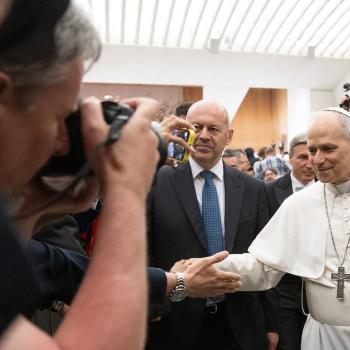I Am Third takes its name from a saying that I believe might represent the basis for every faithful life: "God is first, my friends are second, and I am third." H. Richard Niebuhr spoke of the tendency of even faithful people to put other things before God; in his book Radical Monotheism, he noted that typically when people talk about their faith, it is "a mixture of faith in the One God with social faith and polytheism," not what he called "radical monotheism," a radical belief in the One and Living God.
This whole business about God's command to have no other god before Him comes from the fact that our natural human impulse is to put our devotion to ourselves, and maybe to a whole lot of secular values, first. And that impulse damages our relationship with God, with each other, and ultimately, with our own best selves. Augustine, in City of God, actually defines sin as love of oneself to the point of contempt of God.
But if we imagine that our faith and our faithful response to God are the defining elements of our lives, and that our love for others is the next most important element of our lives, then by placing ourselves third, we will be living a life that brings the greatest good to others (and, paradoxically) to ourselves. Now, I know and believe in the requirement that we love ourselves and take care of ourselves; as someone trained to be a priest and who lives surrounded by priests, pastors, and other ministerial types, I know all about the dangers of putting others before oneself in such a way that one ends up wasting away physically, emotionally, or spiritually. But we can have a healthy care for ourselves and still recognize that this existence is not all about us.
I too once approached life from the standpoint that my human freedom was an absolute value, and I remember that the first time that I heard Augustine's famous pronouncement "Love God and do what you will," I was pretty excited. I thought it was a saint-approved license for me-dom. "I love God," I thought, as I understood that concept then, before meeting Richard Niebuhr. "And I love doing whatever I want. So this works out pretty great for me."
But from the standpoint that I Am Third, where I am trying to live now, I hear this pronouncement as Augustine meant it, filtered through his Two-Fold Commandment of Love (Love God, Love your neighbors): If am truly placing God on the throne of my life, if God is truly first, then my values will be God-values, and the choices I make will reflect that. I will show my love for God by serving others. I will show my love for God by placing the wellbeing of others ahead of my own desires. I will try to love others as I imagine God does.
And if I begin to do that, then I begin to make all my decisions -- not just my personal decisions, but my political ones, too -- in a way that benefits others, and not purely myself.
Now, of course, in realistic terms you are right to ask: Are Americans capable of placing themselves third? Our mid-term elections this week, no matter which candidates triumph, are probably going to indicate that we aren't, for the most part. These elections, like most recent contests, have been largely conducted and won on issues of narrow self-interest. (That, and fear, another thing we'll talk about soon.)
But can Americans be called to a greater good than themselves? Are Americans still willing to sacrifice to create a better world?
If I didn't believe we were, I wouldn't be wasting my time thinking, speaking, and typing.
So I'll see you next week to sort through some initial responses to the mid-terms. Until then, may God bless you and keep you, and may God call us together into love, compassion, and service.
Greg Garrett writes a weekly column (Thursdays) at Patheos on Religion and Politics.
Read other articles by Greg Garrett at Patheos:
- "Don't Tread On Me," American Individualism and Faithful Community
- God and Public Life: Faithful Citizenship
- Nine Years After 9/11: Islam, Glenn Beck and a Nation Divided
- Muslims, Ground Zero, Fear and Fairness
- Hope Yet for Mainline Denominations
Greg Garrett is the author of works of fiction, criticism, and theology, including the forthcoming The Other Jesus from Westminster John Knox Press. He is Professor of English at Baylor University, and a licensed lay preacher in the Episcopal Church.





